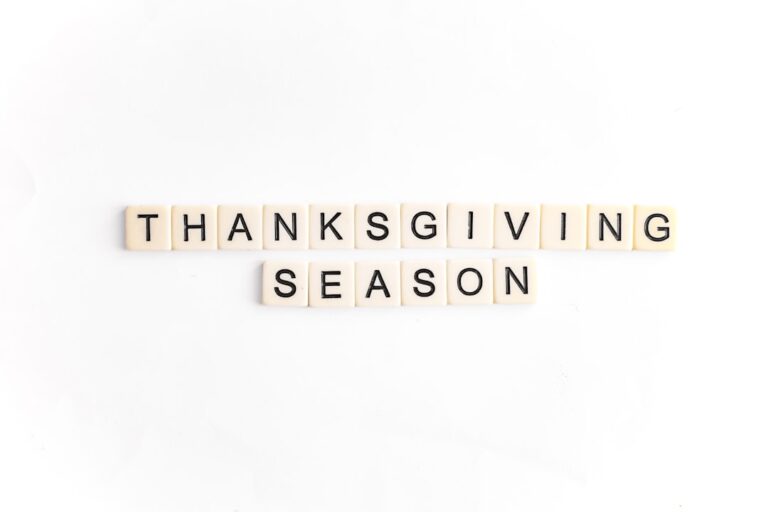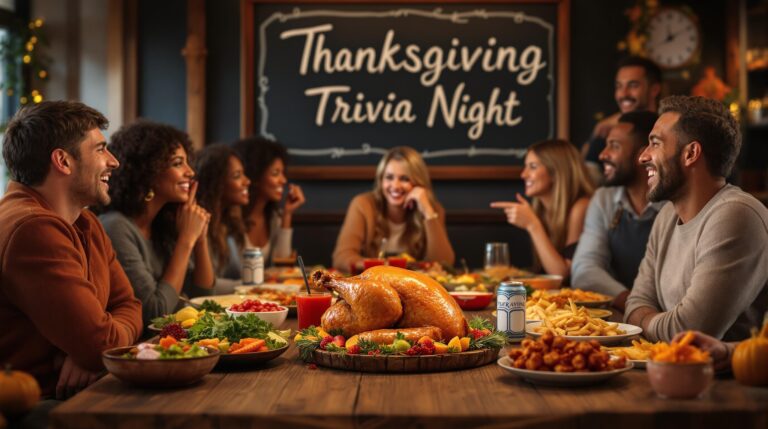Pub trivia nights can transform slow weekdays into fun, profitable evenings. Here’s how to plan a successful event:
Key Steps to Get Started:
- Pick a Date and Venue: Thursdays work well. Choose a space with good seating, food service, and tech setup.
- Choose a Theme: Themes like holidays or local interests attract more participants.
- Budget and Pricing: Cover costs for prizes, staff, and equipment. Set an entry fee accordingly.
- Build a Team: Assign roles like MC, scorekeeper, and technical support.
- Promote Early: Use social media, posters, and email to spread the word.
Trivia Content Prep:
- Write engaging, accurate questions or use pre-made packs like weekly trivia subscriptions.
- Structure rounds (e.g., General Knowledge, Picture Round) to keep it exciting.
- Set clear rules and scoring systems.
Venue Setup:
- Arrange tables for visibility and comfort.
- Test audio/visual equipment.
- Streamline check-in and food/drink service.
On Event Day:
- Start on time, keep energy high, and announce scores after each round.
- Wrap up with prizes and thank participants.
After the Event:
- Gather feedback, review finances, and plan your next trivia night.
For ready-to-go trivia questions, check out weekly trivia packs.
Step 1: Basic Event Planning
Pick Your Date and Location
Start by choosing a date and venue. Weekday evenings, especially Thursdays, work well for pub trivia. For example, The 1762 at The Warwick Hotel experienced nearly a 300% boost in sales on Thursdays. Pick a location that’s easy to reach, fits your audience, and has the technical setup and food service you’ll need.
Choose Your Theme and Topics
Themes can make or break your trivia night. Holiday-themed events, for instance, tend to draw bigger crowds. Need inspiration? Check out our weekly trivia subscription service. Hosting a Thanksgiving event? Our Thanksgiving Trivia theme packs might be just what you need. Tailor your theme to current holidays, local interests, or your audience’s preferences.
Plan Costs and Pricing
Create a budget that covers all your expenses – think score sheets, answer forms, prizes, staff, marketing, and equipment like microphones and screens. Then, set an entry fee that balances affordability with covering your costs.
Build Your Event Team
A good team is essential for a smooth event. Key roles include:
- Quiz host/MC: Keeps the event lively and on track.
- Scorekeeper: Tracks team scores accurately.
- Runner: Handles tasks like collecting answer sheets.
- Technical support: Manages microphones, speakers, and other equipment.
- Door staff: Welcomes guests and handles entry fees.
Once your team is ready, shift your focus to spreading the word.
Promote Your Event
Start promoting your trivia night about three weeks in advance. Use social media event pages, local event listings, in-venue posters, email newsletters, and word-of-mouth from regular customers to get the buzz going.
Step 2: Preparing Trivia Content
Get Your Questions Ready
The backbone of any trivia event is well-thought-out questions. Our Thanksgiving Trivia theme packs offer over 40 pre-made questions across various categories, available in both PDF and PowerPoint formats. For ongoing trivia needs, our weekly trivia subscription service starts at $59.99 per month and includes rounds on current events, picture-based challenges, and tie-breaker questions.
Once your questions are ready, plan how to organize your game rounds to keep participants engaged.
Structure Your Game Rounds
Here’s an example of how you can structure your trivia rounds:
| Round Type | Duration | Format | Description |
|---|---|---|---|
| General Knowledge | 15 mins | 10 questions | A mix of topics to get everyone started |
| Picture Round | 20 mins | 15–20 images | Visual prompts that spark team discussion |
| Themed Round | 15 mins | 10 questions | Questions tied to your event’s theme |
| Final Round | 10 mins | 5 questions | Higher stakes with bigger point values |
Create Score Sheets and Rules
Organize your scoring system to be clear and easy to follow. Design simple score sheets with fields for team names, round-by-round scores, and a running total. Before the game starts, display and explain the rules. Key rules should cover:
- Restrictions on phone use
- Time limits for answering questions
- How scoring works for each round
Having clear rules ensures a smooth and fair game.
Check Question Quality
Before finalizing your trivia content, double-check these points:
- Facts and answers are accurate
- Questions vary in difficulty
- Each question has a single, clear correct answer
- Topics and formats are diverse
- Content is appropriate for your audience
This attention to detail helps keep the game fair and enjoyable for everyone.
Step 3: Venue Setup
Arrange Team Tables
Set up tables so that everyone has enough space to sit comfortably. Make sure all participants have a clear view of the screens, servers can move around easily, lighting is adequate, and team markers are easy to spot.
Test Audio and Visual Equipment
Before the event begins, test all microphones from different spots in the room. Confirm that the speakers provide even sound coverage, screens are visible from every angle, and sample questions display clearly. Adjust volumes as needed.
Keep spare equipment on hand in case something goes wrong:
- Extra microphone
- Backup display cables (HDMI, VGA)
- Portable speaker system
- Power strips and extension cords
Once equipment is set, focus on making check-in smooth and efficient.
Set Up the Check-in Area
Create two check-in stations at the entrance for faster registration. Use clear signage to guide participants, and designate spaces for prizes, sponsor materials, and late arrivals.
Plan Food and Drink Service
Keep participants energized with an efficient food and drink setup. Prepare your team by:
- Providing quick snacks like chips, nuts, and pretzels
- Assigning a dedicated server for trivia participants
- Offering a simplified menu for faster service
- Placing water stations in convenient locations
For ready-to-go trivia questions and themed rounds, check out our weekly trivia subscription service.
sbb-itb-4c464a8
Step 4: Running the Event
Do Final Checks
Before the event begins, make sure everything is ready to go:
- Equipment: Test all audio and visual gear one last time.
- Materials: Check that you have enough answer sheets, pens, and team number cards.
- Prizes: Confirm all prizes are labeled and ready for distribution.
- Staff: Ensure everyone on your team knows their roles and responsibilities.
- Venue: Double-check seating arrangements and adjust lighting if needed.
Once everything is set, you’re ready to move on to team registration.
Check In Teams
Smooth team check-ins are crucial for starting the event on the right note. Set up registration stations and have team captains:
- Sign in and provide their team name.
- Complete registration, including any entry fee payment.
- Pick up answer sheets and their team number.
- Review the basic rules and event schedule.
Keep a digital record of team details and payments. Using digital payment options can save time and reduce hassle.
Lead the Game
Keep the energy high and the event running smoothly by following these steps:
- Start the game on time to set a professional tone.
- Read questions clearly and at a steady pace.
- Stick to a strict time limit for answering each question.
- Announce the correct answers promptly after each round.
- Provide regular score updates to keep teams engaged.
- Schedule short breaks to give participants a chance to recharge.
- Address any disputes quickly and fairly to maintain a positive atmosphere.
Looking for new trivia material? Check out our weekly trivia subscription service for fresh content.
Hand Out Prizes
Wrap up the event with an exciting prize distribution:
- Announce winners in order, starting with third place and ending with first.
- Hand out prizes immediately after revealing the final scores.
- Take photos of the winning teams (with their permission).
- Thank everyone for participating and share details about your next event.
You could offer tiered prizes, such as a grand prize for first place, a solid reward for second, a smaller prize for third, and a fun bonus for the team with the best name.
Need themed questions for the holidays? Check out our Thanksgiving trivia collection for seasonal packs.
Step 5: After the Event
Thank Your Team
Show your team some appreciation for their hard work. Here’s how you can do it:
- Hold a quick team meeting to highlight what went well.
- Share small tokens of gratitude to acknowledge their efforts.
- Keep track of individual contributions for future reference.
- Set up a group chat to stay connected and share updates.
Review Financial Results
Take a close look at the event’s financial performance. Key metrics to evaluate include:
- Total entry fees collected
- Revenue from food and drinks sold during the event
- Costs for staff and other expenses
- Prize money payouts
- Overall profit or loss
This analysis will help you understand the event’s financial success and plan more effectively next time.
Gather Player Feedback
Implement a feedback system to understand the player experience. You can use:
- QR code surveys for easy access
- Comment cards placed on tables
- One-on-one chats with team captains
- Monitoring comments on social media
- Reviewing attendance numbers
Focus on specific areas like:
- The difficulty of the questions
- How well the rounds were paced
- Prize distribution
- Sound quality during the event
- Overall atmosphere
This feedback is invaluable for making improvements.
Plan Your Next Event
Use what you’ve learned to start preparing for your next trivia night. To keep things running smoothly:
- Lock in the date for your next event right away.
- Update your promotional materials with the new details.
- Refresh your question bank with new content.
- Consider hosting themed nights based on player suggestions.
- Keep your content engaging with our weekly trivia subscription service.
How to Run a Trivia Night in 7 Steps
Quick Reference Guide for Trivia Night Success
This guide simplifies the key steps for hosting an effective trivia night, turning detailed plans into easy-to-follow actions.
Event Planning Basics
- Set clear goals and create a budget.
- Choose the ideal date and venue.
- Assign team roles to ensure smooth operations.
- Develop a focused promotional plan.
Preparing Trivia Content
- Write verified and entertaining questions.
- Organize rounds to maintain a steady flow.
- Test audio/visual setups and table layouts in advance.
"Our trivia nights have completely turned around our slow evenings. We’ve seen a significant increase in new customers, and our regulars love it. Highly recommend!"
– The 1762 at the Warwick Hotel
Boost Your Event with Professional Tools
Save time and streamline your trivia night using expert resources. With our weekly trivia subscription service, you get 40+ new questions every week for $59.99/month. Each package includes:
- Four engaging rounds
- Picture rounds
- Tie-breaker questions
- Formats available in both PDF and PowerPoint
Planning a holiday-themed event? Check out our specially designed Thanksgiving trivia packs. These packs come with pre-verified questions and professional layouts, making your event preparation effortless.






